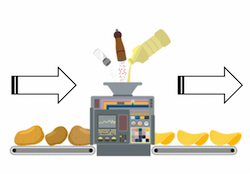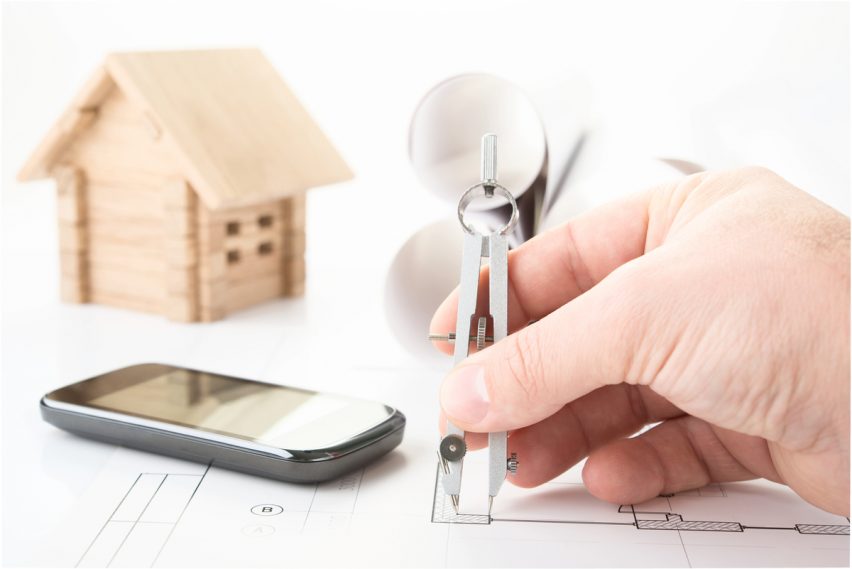What are directly attributable costs?
Last update: 2023
When you acquire a long-term asset, you can include directly attributable costs to the initial measurement of its cost.
Although IFRS define directly attributable expenses quite clearly and provide a few examples, there are many different items we are not sure about.
In this article, I decided to look at directly attributable expenses with a magnifier and to give you some guidance for your future use.
I’d like to focus on acquisition of tangible assets under IAS 16 Property, Plant and Equipment, but the same principles apply for intangibles and other assets, too.
What do the rules say?
IAS 16 says that we can capitalize any costs directly attributable to bringing the asset to the location and condition necessary for it to be capable of operating in the manner intended by management (IAS 16.16(b)).
In the paragraph 17 of IAS 16 there are the examples of what expenses are considered to be directly attributable and therefore, can be capitalized (or included in the cost of an asset):
- Costs of employee benefits (IAS 19 Employee benefits) arising directly from the construction or the acquisition of the item of PPE,
- Costs of site preparation,
- Initial delivery and handling costs,
- Installation and assembly costs,
- Costs of testing whether the asset is functioning properly, after deducting the net proceeds from selling any items produced while bringing the asset to that location and condition, and
- Professional fees.
As opposed to that, the paragraph 19 of IAS 16 lists examples of costs that are not costs of an item of PPE and therefore, cannot be capitalized:
- Costs of opening a new facility
- Costs of introducing a new product or service
- Costs of conducting a business in a new location or with a new class of customer, and
- Administration and other general overhead costs.
On top of that, IAS 16 clarifies in the paragraph 20 that costs of operation below full capacity, initial operating losses and relocating or reorganizing entity’s operations are not to be capitalized.
Clear enough.
Yet in practice, there are many items that require our careful judgment and we are not sure whether to include them in the cost of an asset or not. These doubts arise especially when your company constructs a big asset, such as a plant or a mine.
Let’s break it down.
Cost of employee benefits

Here, two principal questions arise:
- Which employee categories arise from the construction or the acquisition of the asset?
The answer is no admin, no general functions, no research activities, no marketing & advertising, no training employees.
It means that:
- You can capitalize the employee benefits provided to site workers, in-house architects and surveyors or production supervisors. To some extent, you can also capitalize quality controls and testing (if these activities are inevitable in order to put an asset into use).
- You cannot capitalize any portion of employees benefits paid to general managers, accountants taking care solely about ship’s accounting, etc.
- Which expenses related to these employees can be capitalized?
The answer is all employee benefits under IAS 19 and that is:
- Short-term employee benefits (salaries, wages, paid vacation…)
- Post-employment benefits
- Other long-term benefits and
- Termination benefits.
The following types of expenses are NOT employee benefits under IAS 19 and therefore, they shall be considered separately:
- Travel expenses of your employees,
- Training of your employees,
How should you include the expenses for the employee benefits into the cost of your asset?
The answer is based on some reasonable allocation method.
For example, you build a ship. Based on timesheet reports you find out that in 20X1 John worked:
- 1 500 hours on the ship construction,
- 300 hours on other projects or work, and
- he took 100 hours of paid vacation.
Your company incurred the following expenses for employee benefits in relation to John’s work:
- Salary: CU 18 000
- Compensation for paid vacation (in line with law): CU 1 000
- Expense for contribution into a pension fund (defined contribution plan): CU 2 000
How much of these benefits can you include into a cost of a ship?
You can include all of these expenses for employee benefits allocated on a reasonable basis.
In this case, we can allocate it based on time spent on a ship construction (1 500 hours) and total time worked (1 500+300=1 800 hours).
Here, we do not take the paid vacation time into account for allocation purposes. It means that a compensation for paid vacation will be allocated to the cost of a ship. The reason is that a company is obliged to provide this vacation to its employees and a vacation is simply another cost of worked hours.
The calculation:
- Allocation of salary: CU 18 000*1 500/1 800 = CU 15 000
- Compensation for paid vacation: CU 1 000*1 500/1 800 = CU 833
- Contribution to a pension fund: CU 2 000*1 500/ 1 800 = CU 1 667
- TOTAL: CU 17 500
Note: you include only current year’s expenses; or the expenses incurred during ship’s construction.
Cost of relocating the asset to the new location

Can you capitalize these expenses to the cost of a machine?
In short, no – this is a relocation cost and IAS 16 specifically says it cannot be capitalized, but expensed as incurred.
Insurance of an asset

The reason is that these costs are not inevitable to bring the assets to the condition and location to operate as desired by the management.
In fact, these costs are incurred to protect an asset against some risks during some period and therefore, it would not be correct to take these costs to the cost of an asset and put them in profit or loss via depreciation over asset’s useful life.
Some time ago, one CFO raised a point to this matter. He said:
“We take a loan to finance the acquisition of a plant, but our bank insists on insurance policy for this plant. Otherwise we won’t get a loan. Without an insurance policy we cannot acquire a plant, therefore I think the insurance cost can be capitalized as it’s inevitable”.
Hmmm, a good argument, but the truth is that the CFO needed an insurance policy to get a loan and not to acquire an asset. In other words, that company could have acquired a plant without a loan, with a cash payment and in such a case, no insurance policy would be necessary.
Operating lease expenses for land

Can you capitalize these expenses?
This question is quite controversial and really, an answer depends on how well you can justify your own view in front of your auditors.
I’d like to give you arguments for YES and NO here:
YES, capitalize:
Operating lease charges can be considered directly attributable costs and included into cost of an item of PPE, if these lease costs are necessary to bring the asset to the desired condition and location. Therefore, rentals paid for land under operating lease on which you build a building can be capitalized into a cost of a building during a construction stage.
NO, don’t capitalize:
I am more in favor of no capitalization, but recognizing these expenses in profit or loss.
The reason is that it produces quite inconsistent impact on profit or loss. If you include just rentals during the construction period into the cost of PPE and you expense the subsequent rentals as they incur, then the first rentals will be expensed via depreciation over asset’s useful life, and the remaining rentals will be expensed immediately. This means that matching principle is shattered.
Also, I always see a land as a separate asset, because its useful life is different from the life of a building on it. The rental payments relate to the “acquisition of a land”, not to a building itself.
You can read more about it here.
Anyway, this is one of the reasons why I like the new IFRS 16 Leases. Under the new standard, you will have to recognize a right-to-use asset instead of dealing with operating lease payments and therefore, this dilemma will not exist anymore.
Travel expenditures

Or, can you capitalize travel expenses of a consultant who came to your site to perform professional work related to PPE?
Unless you have a great argumentation ready for your auditor, then no, you should not do it.
The reason is that these expenses relate more to personal services than to bring an asset to the desired location and condition. At least, that’s what I experienced in the practice.
However, this area is quite unclear and you might be successful to provide good arguments to your auditor for capitalizing.
If you hire a consultant and you agree to pay travel cost for him, you should try to negotiate the higher price for his services with inclusion of all his expenses (to hide his travel expenses into the cost of service) – just to be on a safe side.
Other expenses you CAN capitalize
- Fees for environmental permits, certifications whether an asset works properly
- Expenses for necessary repairs during the construction phase
- Expenses for removing hurdles on the site (e.g. demolition of old building)
Do not capitalize:
- Training expenses (never!)
- Expenses for searching an appropriate site, evaluation of a site, feasibility study
- Advertising and marketing expenses
- Expenses to hire employees
OK, guys, I’ve just tried to bring more light to the most common types of expenses and feel free to ask in the comments if you need help with something else. I might update this article and add some more explanations!
Tags In
JOIN OUR FREE NEWSLETTER AND GET
report "Top 7 IFRS Mistakes" + free IFRS mini-course
Please check your inbox to confirm your subscription.
Recent Comments
- mahima on IAS 23 Borrowing Costs Explained (2025) + Free Checklist & Video
- Albert on Accounting for gain or loss on sale of shares classified at FVOCI
- Chris Kechagias on IFRS S1: What, How, Where, How much it costs
- atik on How to calculate deferred tax with step-by-step example (IAS 12)
- Stan on IFRS 9 Hedge accounting example: why and how to do it
Categories
- Accounting Policies and Estimates (14)
- Consolidation and Groups (25)
- Current Assets (21)
- Financial Instruments (56)
- Financial Statements (54)
- Foreign Currency (9)
- IFRS Videos (74)
- Insurance (3)
- Most popular (7)
- Non-current Assets (56)
- Other Topics (15)
- Provisions and Other Liabilities (46)
- Revenue Recognition (27)
- Uncategorized (1)





Hi Silvia,
Thank you for your article. Can you please help me to get clarification on the below point.
Recently our company leased some industrial land from the government for a long period with the agreement that we will build our factory there. As per terms of the authority, we have to pay fixed charges until we complete the factory and start production which is additional than the annual rent. For the last year, we are paying this penalty and it will take another one year to complete the factory in running condition. Hence can we capitalize on this penalty with Building assets?
Hi Liju, I don’t think that any penalties are directly attributable costs of acquisition.
Hi Silvia,
Your article is very helpful. I have a question for intercompany margin on labor costs directly attributable to construction project, the construction employees’ labor costs are paid and back charged by an inter-company with mark-up (margin), There is an intercompany service agreement between the project company and the inter-company in place and the intercompany magin is recorded as income in the inter-company, can the intercompany margin be capitalized in the project company which is under construction?
Thanks!
Yes, but this margin needs to be eliminated for consolidation purposes (i.e. PPE on the consolidated level will have lower cost than in the separate financial statements).
Hi Silvia,
Thanks very much for all your articles. They have really helped me a lot and clarified so many doubts I had.
Please i wish to ask if we should or should not capitalise estimated dismantling costs at the beginning of an operation, like the case of a mining company which is obliged by the local legislation to repair the destroyed environment at the end of its operations or dismantling a heavy machine at the end of an operation?
The Insurance Premium Paid for Assets in Transit, Should this cost to be capitalized or not?
Hi SIlvia,
Great article. We have started a project but after detailed engineering (before commissioning) the project seemed to be too expensive to execute. We have redesigned the project too fall within budget. Can we capitalize the engineering cost spent or should we expense these as they should be considered feasability study costs?? Or are they part of the detailed engineering of the final solution and hence should be capitalized?
Thanks!
Hi Silvia
Thanks for the article.
We have recently purchased new machinery. To install the new machinery, we had to remove/ dismantle the old machinery to replace with the new one. Also, we had to rebuild the space for the new machinery to setup.
My question is can we capitalise the dismantle costs for the old machinery and setup costs for the new machinery? It costs us around £200k.
Appreciate your help.
I think this article can help. S.
Dear Silvia,
one quesiton from an renewable energy project developer:
The development phase of a renewable energy power plant might be severeal years before construction begins. To get to the ready to build phase, normally all development costs (wind assessment, consultancy costs, grid studies, etc.). One of the first steps is the site security via a land lease contract between the developer and the landowner. As said above, it takes several years until the power plant will be build, so unitl then the lease contract is more like a lease option if development will be successfull. Now also via this contracts significant lease payments might occur. And here’s now the quesiton: can this costs be capitalised? We argue vs. our auditor, that this costs are necessary to bring the asset to working condition for its intended use (even if capitalisation occurs under IAS 2 and is shown under work in progess, inventories).
What is your opinion, capitalise or expense this costs?
Dear Silvia,
My employer signed an agreement for purchase of fixed asset. The agreement includes a penalty clause if the fixed asset is delivered beyond the agreed date. Since the supplier delivered the item after the agreed delivery date we make the payment by reducing the invoice amount for the penalty. My question is should we measure and recognize the item net of the penalty charge or at the gross amount?
Hello Sylvia,
The best thing a friend of mine has done this year is to introduce me to your website and articles, she will always be appreciated. 🙂
In the event of taking a heavy machine, such as a key component of a gas turbine for maintenance in a foreign country… premium payment for the transit insurance (road and sea, quite significant cost) can they be capitalized to the cost of the asset.
The key argument here by my manager is that it is necessary to improve the life and performance of the asset.
I hope you see and reply to this.
How would you treat this nature of transaction?
Hi Odili, IFRS says nothing specific about capitalizing an insurance, but as I wrote here – it is mostly seen as a service related to the specific period. However, this is a case when the insurance covers safe transport of an asset, thus I would agree with capitalizing.
This is a great explanation. Its on point
Hi Silvia – thank you for your article and your clarifications, they are very useful.
We are upgrading our ERP software and we are using an external Project Manager who is scooping the project, advising the Steering Committee, etc. For UK GAAP, are his costs “necessary to bring the asset to working condition”, should they be capitalised? Many Thanks.
Hi Silvia – how should we treat a 3 year IT maintenance fee to the supplier who supplied us with IT equipment + installation.
Well, the ongoing maintenance fees do not relate to acquisition itself, so expense them in profit or loss. Installation part can be capitalized.
Hi Silvia,
Can we capitalised pre-delivery crew cost of a vessels? eg. if crew is sign on on board to prepare for the takeover and operate the vessel on delivery perhaps 15 days to 1 month before vessel is delivered from shipyard or seller to buyer.
Hi Silvia,
Stamp duty is incurred to acquire the ownership rights of a property. Hence, is stamp duty is a directly attributable cost and can it be capitalized?
Hi Sylvia,
Can we capitalize finance testing staff cost for a GL replacement?
Thanks,
Raje
What is a finance testing staff cost for a GL replacement? Sorry, I don’t understand.
Hi Silvia
The current GL system is being replaced , finance users will be the end users of the GL system, they are testing the data mapping to the COFA is correct between old GL system to the new GL.
Under IFRS can the end user testing cost be capitalized?
Thanks,
Raje, I still have no clue what your abbreviations mean. COFA, GL (general ledger maybe?)…
Very helpful article, thanks!
Can you capitalise meals for construction workers?
Hi,
Can we capitalise an asset which we buy and use but don’t own?
We buy an asset, recharge the cost of an asset to the client. We would physically use the asset over the life of an asset, but ownership of an asset remains with the client because we have sold that asset in the form of recharging the cost to the client.
So in effect, we are spreading the cost of an asset of e.g. 3 years (the life of an asset) and took revenue on day 1. Is it allowed practice?
Hi James, as soon as it meets the definition of an asset / PPE, then yes. An asset definition refers to the resource being controlled by the entity (not necessarily owned by the entity). However, in this case – you need to account for this asset within the context of the contract with the customer. More specifically, if the charge for the asset is within some contract for the customer, it might be necessary to treat this charge as a part of total consideration within the contract under IFRS 15 and allocate it to the performance obligations – the reason is that the asset that you are recharging is NOT a performance obligation promised to the client.
Silvia, hi. Could you advise me, please. We acquired the asset under finance lease and except for lease debt amount lessor asked us to pay lease fee. But this we will be paid by equal parts during the term of finance lease. Our finance team consider this fee as transaction costs. Should we capitalize it or we just need to decrease our finance lease liability and then till the end of the lease incur monthly interest expense till the end of the lease? Or we should recognise a LT prepayment, discount it and then decrease each year till the end of the lease proportionally by year interest expense? Thank you. Mikhail.
Hi Silvia,
On Capitalization, I did not see any mention of commissioning and validation costs for machinery or production equipment. Example is an equipment or entire production line that is ether bought new or transferred from a site to another and requires equipment and/or process qualification and validation – are the related costs allowed to be capitalized?
Hi Silvia,
We had a car which was insured. One month back it got ACCIDENTED and totaled. Insurance company asked us to pay 30% of the value of car and gave us a new car. Kindly tell what accounting treatment is required. now?
What is the amount you get from insurance?
can one capitalize a laptop bag or include the cost of a laptop bag on the laptop itself to capitalize it
Hi Paul, I don’t think that the bag is directly attributable to some specific laptop – usually you can use it independently from laptop itself (e.g. for a different laptop or as a bag for papers… ).
Is banks fees classified as asset cost when doing the payment for the purchase of item internationally
No
Hi Sylvia,
How about contract management type activities such as performance monitoring in relation to capital works, or finalising capital accounts for call off contract?
Thanks
Sue
Dear Silvia,
Our company signed a purchase agreement with a supplier. In the agreement there is a penalty clause for not delivering the item within the agreed upon date. Since the supplier could only deliver the item after the agreed upon delivery date we make the payment net of the penalty. My question is should we measure and recognize the item net of the penalty charge or at the gross amount?
Hi, we are public sector company. We purchased a building and paidbrokerage commission for acquiring the building. The commission has to added to cost of building and land proportionately or has to be expensed ?
You need to add such commission and allocate such cost using appropriate ratio.
Hi Silvia,
Thanks for your lesson and it very much useful to me as a student.
If a Company installed a new Machinery and provide initial training to Staff to get ready to use the asset properly as intended by management. So, in this case can a Company Capitalize Staff Training Cost as it is necessary to use the asset as intended by management?
No.
Hello Silvia.
Thank so much. I would like to clarify on Traveling and Training expense. It shall be not capitalized.
– So this apply to Company’s employee only?
– My company contract with one supplier on one project. Then in contract there are these expenses.
But do we still capitalize (the expense is already stated in contract)?
Hi, Silvia, your article is very helpful to understand IFRS more clearly. I have one question. How can we measure fixed time deposit deposited to one Micro Finance Institution for a period of 10 years. There is no market rate with similar term/period. So how can we measure this fixed time deposit based on amortized cost?
Hi Sylvia,
What about bonus costs paid for completing a refurbishment on time? For me, these are directly attributable costs and should be capitalised as they affect the condition of the asset.
best wishes,
Colin
Hi Colin, if it was a part of original contract, then yes, capitalize.
Hi Sylivia,
Where there is an ongoing contract for improvement of a highways network, which of the following roles carried out by the contract management team could you capitalise?
– contract performance and compliance monitoring
– business process review
– instruction and agreement of target price for individual works
– cost controllers
– commercial managers
Hi Silvia,
what about the following:
1- legal fees for reviewing buy and sale contract in order to acquire investment property.
2- consultancy fees paid to an engineer to recheck the quality of the building.
3- fees paid to an expert company to re-evaluate the cost or price of the building.
Hi Silvia,
we are constructing a building for sale for the past 5 years and we have been capitalising the (annual) property tax that we have to pay for this. We haven’t seen any guidance in IFRS related to property tax in IAS 2 for instance. We classified the building as inventory. We also capitalise interest expense during the period in accordance with IAS 23. Do you see any issue with each of these 2 items? Thanks
is interest incurred in the acquisition of land or property also capitalizable?
HI,
Can you capitalized depreciation of a vehicle used during construction? like a service vehicle for the employees involved with the construction?
Hi Mayer, yes, if the vehicle is used in the construction process, yes. S.
Hello Silvia, thanks for your article, please I want to know whether construction labour can be capitalized.
Hi Stephen, yes, if it is the labor of the employees involved in the construction itself (not administrative employees). S.
Security agencies Fee will be Capitalized or not when it is related to new Plant and provide Safety for construction Material
Hello Silvia, thank you for the article. We have many projects where internally generated tangible and intangible assets are created. Can we capitalize depreciation of PPE e.g PCs, furniture etc of people partially working on these projects? Would there be a difference if the PPE would be used fully (100%) on the project in terms of capitalization of depreciation? thank you very much
Hi Silvia, I recently got a question about whether or not we can capitalize well insurance costs. I am at a loss when trying to find any specific guidance on the subject. The previous practice was to capitalize these costs as a part of the well investment along with sole cost. Can you advise on where I can find more literature on the subject or provide your professional opinion?
Hi Giva,
I described my opinion up in the article and well, I have nothing else to say. Insurance is a service related to the specific year and NOT directly attributable to bringing the asset to the desired condition and location. S.
Hi Silvia,
Thank you for the above summary.
Could you kindly advise on the below situation i have:
My company has spent a good amount on interior design consultancy for a rented space for opening a cafe. Can this consultancy fees be capitalised?
I’d be interested to know the answer to this question as well. Any authoritative guidance on the subject would also be appreciated, if you can find any. I haven’t been able to find any such guidance.
OK OK – I have not responded it because I would be always repeating the same stuff that I have already mentioned in many places here in this website. If consultancy fees are directly attributable to improvements of rented office then yes you can capitalize them. You can capitalize leasehold improvements and depreciate them over the rental period or their useful life, whatever is shorter. I hope it helps!
Hi Silvia,
A company is in establishing phase (Agriculture & marketing). They have Packaging and designing conceptual cost’s (Concept design). This first time cost will be capital expenditure or Period expense?
Unless they meet the definition of an intangible asset (development stage, to be more precise) or can be directly attributed to some PPE under IAS 16, then they are expense.
Hi,
in our company we do a lot of mega projects like building power stations so sometime we are required to make strategic donations to the community or area that we building the power station in, without this donations, the project will not proceed. I would like to know if this donations can be capitalized and currently we are expensing them, the amounts are huge. we believe the donations are costs directly attributable to bringing an item of property, plant and equipment to the location and condition necessary for it to be capable of operating in the manner intended by management.
Hi Silvia
What a great article. I wonder if you could advise whether you think legal fees could be capitalised – relating to a dispute over broker fees for finding a site to build a vessel ?
Hi Lyndsey, I believe that no because these fees are not directly attributable to bringing the vessel into its intended location and condition… I would say they are attributable to the dispute itself. And you don’t need any dispute to acquire a vessel. S.
Request re: Conditions under which Property assets can avoid Depreciation being charged under IFRS ? Any guidance available on this treatment for properties that are likely, to have a high residual value over time and would result in immaterial depreciation charges – is this acceptable subject to an annual impairment review ?
Wondering if IFRS will have to address the dramatic increase in enviro-fees that are collected on manufactured products for the sole purpose of end-of-life recycling either of the whole component or parts of. These fees are becoming pervasive and increasing a larger % of the cost of the asset.
Will firms acquiring assets with substantial enviro-fees as part of the invoiced amount be able to capitalize these costs?
This is somewhat similar to mining firms (extraction) capitalizing the costs of returning a mine site back to it’s original state.
“An item of property, plant and equipment should initially be recorded at cost. [IAS 16.15] Cost includes all costs necessary to bring the asset to working condition for its intended use. This would include not only its original purchase price but also costs of site preparation, delivery and handling, installation, related professional fees for architects and engineers, and the estimated cost of dismantling and removing the asset and restoring the site (see IAS 37 Provisions, Contingent Liabilities and Contingent Assets). [IAS 16.16-17]”
Hi Silvia,
Could you please explain with IFRS Standards, how to allocate the Rental Expenses to Direct Attributable cost and General Admin expenses, in manufacturing industry, specifically in Readymix Concrete Industry.
Regards
Aejaz
Hi Silvia,
Can the cost of leasing a vehicle to access a construction site be capitalized? The lease period will only be during the construction season, which is from May to September 2018. Thank you.
Dear Silvia.
Today at my work I have received question if we can capitalize material used to adjust/set newly acquired bending machine (PPE). We are producing fuel fillers for automotive industry. Our direct material are tubes which need to be bend into requested shape. Before our new bending machine will produce exact parts, we have to make lot of trials and use material which will not be sold but scrapped. Sometimes these costs of material carry significant values. What kind of view do you hold in this case? As I feel that the management in my company tend to postpone costs I would like to hear your objective opinion. Many thanks.
Sona
Hi Sona,
as I understand, the material is used to produce the parts to make sure that the bending machine works properly, is that right? So can we say that this material is used to set the machine for the proper production? And, without this setting, the machine cannot be put into use?
See, the standard IAS 16 permits capitalizing testing costs, but prohibits capitalizing abnormal waste. However, from what I understand, I would say that these tubes are just testing cost, not an abnormal waste, because it is necessary to test the machine and properly set it before the full production can be launched. If this is true, then capitalize. (Hmmm, as I see your name, I think we are from the same country 🙂 )
Hi Silvia, Thank you for the article, Can you please let me know if we can capitalise the cost of compensation paid to outsiders for their assets (old building) where we are going to construct a new building. Thank you
Hi Tashi, it seems that without the compensation, you can’t acquire the land, so yes, these would classify for capitalizing. However, be careful about the old assets – it depends whether you are going to demolish them right away, or wait for some time… please see more in the podcast Q&A n.3 here. S.
Hi Silvia,
Many thanks for the above useful information, but I have one more question in regards finance cost. As we have already got a loan to finance our plant and we are capitalizing the interest. But during the construction period, we got another loan from different bank with lower rate. So, we decided to settle the first loan using the new facilities and complete the plant with remaining balance of the new facilities. So, Can we capitalize the total interest on the new facilities including the interest arising from the settlement of the first loan (Specially the construction of the plant not finished yet.)
Thanks
Can we capitalize a provisión related to claim during the construction process ? The amount is not yet final since we aré still in the court.